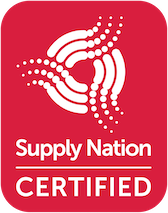Certain businesses must be prepared for mandatory climate reporting in 2025 to comply with new regulations and to maintain market credibility.
The Australian government’s initiative to enforce mandatory climate-related financial reporting is a crucial step toward enhancing corporate transparency and accountability. As experts in ESG consulting, we are committed to helping businesses navigate these regulatory changes effectively.
Quick summary
- Mandatory Reporting Starts: 2025
- Entities Affected: Large corporations, NGER reporters, asset owners
- Key Reports: Climate statements, notes, directors’ declarations
- Assurance Requirements: Limited from 2025, full from 2030
- Liability Relief: Scope 3 emissions for three years
Understanding the new legislation
Entities affected
The upcoming mandatory climate-related financial reporting will primarily impact large entities. Additionally, entities with obligations under the National Greenhouse and Energy Reporting (NGER) Act, as well as asset owners with $5 billion or more in assets, will also fall under this mandate.
| Large entities and their controlled entities meet at least two of three criteria | National Greenhouse Energy Reporting (NGER) reporters | Asset owners | |||
| Consolidated revenue | End of financial year consolidated gross assets | End of financial year employees | |||
| Group 1 | $500 million or more | $1 billion or more | 500 or more | Above NGER publication threshold | N/A |
| Group 2 | $200 million or more | $500 million or more | 250 or more | All other NGER reporters | $5 billion assets under management or more |
| Group 3 | $50 million or more | $25 million or more | 100 or more | N/A | N/A |
Phased implementation
- Group 1: Reporting starts from 1 January 2025 (delayed from the initial 1 July 2024 date).
- Group 2: Reporting starts from 1 July 2026.
- Group 3: Reporting starts from 1 July 2027.
By understanding which category your business falls into, you can better prepare for the specific timeline and requirements you will need to adhere to.
Reporting requirements
Contents of reports
- Climate Statements: Detailed accounts of the business’s climate-related risks and opportunities.
- Accompanying Notes: Additional information and context to support the climate statements.
- Directors’ Declarations: Formal affirmations by the directors regarding the accuracy and completeness of the reports.
Assurance requirements
The assurance process for climate-related disclosures will be phased:
- Limited Assurance: From 2025 to 2030, businesses will need to obtain limited assurance for Scope 1 and 2 greenhouse gas (GHG) emissions.
- Full Audit: From 2030 onwards, all climate-related disclosures will require a full audit to ensure their accuracy and reliability.
Modified liability regime
Scope 3 emissions relief
To encourage transparent reporting, the legislation provides immunity for Scope 3 emissions disclosures for the first three years (2025-2028). This relief period allows businesses to refine their reporting processes and improve the accuracy of their Scope 3 emissions data without facing immediate liability.
Scenario analysis
The legislation includes special provisions for scenario analysis disclosures, encouraging businesses to explore and report on potential future climate-related risks and opportunities. This analysis helps businesses and stakeholders understand the long-term implications of climate change on their operations and financial performance.
Preparation steps for businesses
To ensure your business is fully prepared for the mandatory climate reporting requirements starting in 2025, here are key steps to take:
ESG disclosure alignment
Review and adjust your existing Environmental, Social, and Governance (ESG) disclosures to align with the new reporting requirements. Ensure all relevant climate-related risks and opportunities are comprehensively covered.
Governance and risk management
Enhance your internal governance structures and risk management frameworks to effectively manage and report on climate-related risks. This includes integrating climate considerations into your overall business strategy and decision-making processes.
Scope 3 emissions strategy
Develop reliable data collection methods for Scope 3 emissions. Given the initial liability relief for Scope 3 disclosures, it’s crucial to use this period to refine your reporting processes and improve the accuracy of your data.
Auditor engagement
Engage with auditors early to integrate assurance processes into your reporting practices. This will help ensure your disclosures meet the required standards for limited assurance from 2025 and full audits from 2030.
Taking proactive steps
With mandatory climate reporting set to begin in 2025, businesses must take proactive steps to ensure compliance. By understanding the new legislation, fulfilling reporting requirements, and preparing your internal processes, you can navigate these changes effectively. This not only helps in meeting regulatory standards but also strengthens your market position and enhances stakeholder trust.
At Origin ESG, we are dedicated to guiding businesses through this transition. Our expertise in ESG consulting ensures that your business is prepared for the upcoming changes in climate-related financial reporting. Contact us today to learn how we can support your journey towards compliance and sustainability.

